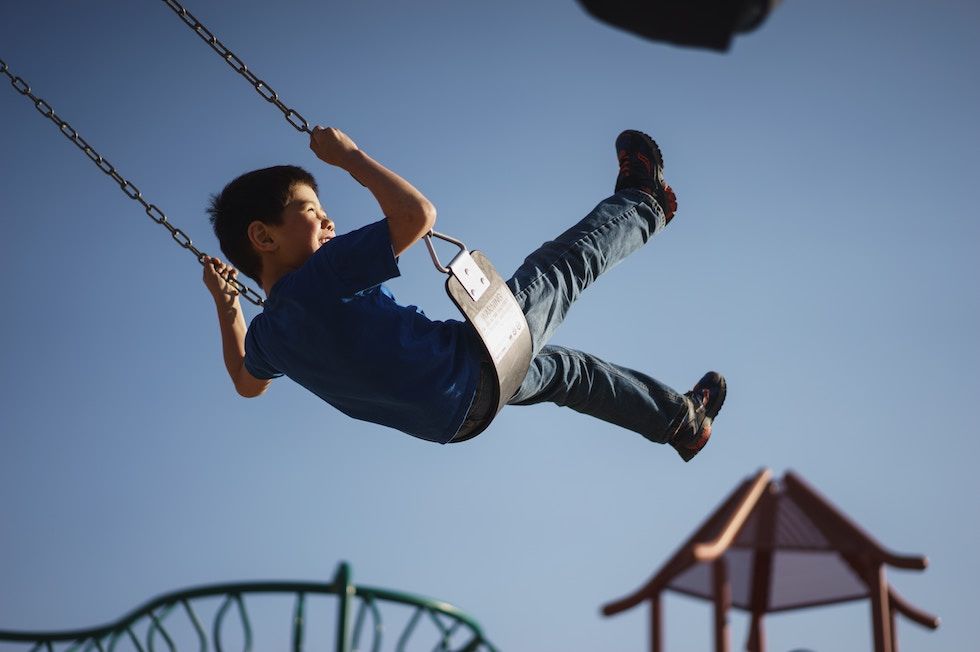
This is part one of a two-part lesson on taking risks, making mistakes, and teaching resilience.
No matter how full and happy our lives may be, we all encounter moments of stress, challenge, and disappointment . . . and as adults, we’ve probably had to learn how to cope effectively with these kinds of situations. Although we expect to see developmental changes in kids’ ability to persist in difficult or challenging moments (in other words, kids get better at being persistent over time, as their brains continue to develop and mature), being resilient is a skill that requires intentional development, practice, and support.
Indeed, research tells us that as parents, we are critical resources to our kids as they learn how to cope with frustrating and difficult situations. Although kids may come to the table with varying abilities to push through (versus giving up) when things get tough, we have the power to help our kids shape and develop the ability to be persistent and resilient over time. How do we do that? Here are a few ways:
Providing opportunities to practice
Modeling the behaviors we would like to see
Coaching and/or giving feedback to our kids in real life situations
Reviewing/replaying difficult moments after they occur
Previewing high-risk situations in the future
Over the next few months, we’ll talk through each of these categories in depth and give you concrete ideas and strategies to try with your child or children.
First and foremost, however, keep in mind that developing new skills requires opportunities to try (and often fail!) to use those skills. Much as we would not send our kids out to a soccer game or piano recital without offering them opportunities to practice, we also cannot expect our kids to manage disappointment or difficulty effectively without letting them consistently experience moments that spark those emotions.
As parents, we can be tempted to try to protect our children from disappointment and frustration. We might allow our kids to quit or avoid activities that are particularly likely to be difficult, or we could lean toward providing too much help or scaffolding on challenging tasks . . . particularly if we know that our kids can be reactive to failure experiences. However, protecting our kids from experiencing frustration or failure simply is not feasible long-term and actually winds up being counterproductive. Those emotions are part of life, and learning how to cope with them is much like learning a new language for your brain—far easier to do when you are younger versus when you are an adult!
Exposing kids to the experience of taking risks, making mistakes, and regularly engaging in activities that they find challenging provides them with the opportunity to practice managing the emotions that come with making a mistake or having to struggle. In addition, having these experiences also helps shift kids’ expectations and normalizes the experience of things not going well. By setting the expectation that things may not always be easy or go smoothly, you are taking away some of the emotional weight of imperfect performance and/or struggling with challenging tasks.
We know some families who even have ongoing dinner conversations requiring everyone in the family to identify their “great mistake of the day”—which sends a really clear message that you expect mistakes to happen and underscores the fact that mistakes are chances to learn.
You can learn more at a Tuesday, November 7 workshop at Practice San Francisco, Persistence: Evidence-Based Strategies to Help Your Child Take Risks, Make Mistakes, and Become More Resilient.
Below are some additional resources to help you and your kids make fantastic mistakes together.
To Read
The Gift of Failure (book)
Raising Resilience (book)
How Praise Became a Consolation Prize (article)
Ask Kids for Advice When You Struggle (article)
Why Mistakes Create a Path for Learning (article)
To Read With Your Kids
To Listen
To Watch
Join thousands of moms in our incredibly active online forums where our members will support you in all your parenting needs. Also come to exclusive GGMG events, get discounts through our partners, and participate in mom-focused activities.
Only $75 per year.
Comments